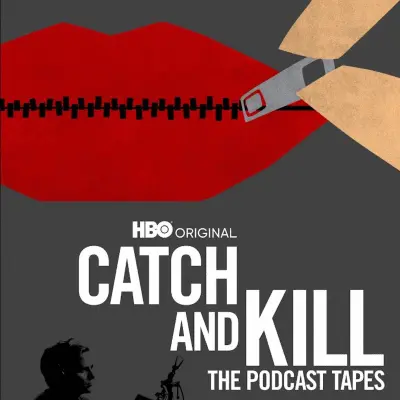Ronan Farrow's Catch and Kill: The Podcast Tapes is watchable because the story is so compelling
-

"Catch and Kill: The Podcast Tapes is exactly that — a filmed podcast," says G. Allen Johnson says of Farrow's six-part HBO docuseries. "Veteran documentary directors Fenton Bailey and Randy Barbato do what they can, but the fact is it’s not very interesting visually, and there are no new revelations here — nothing that wasn’t already in print. And yet it’s watchable because the story is so compelling. The six episodes take us through how the reporting was done step by step. It began when Farrow became aware of the existence of a recording of Weinstein by model and actor Ambra Gutierrez, using that as a starting point in his investigation. Gutierrez is the star of the first episode, 'The Wire.'"
ALSO:
- Catch and Kill is six episodes of what we already know: "Farrow’s reporting on the subject was published," says Kristen Lopez. "The book was a critical and commercial success in a year that saw the #MeToo movement move with the power of a freight train. Two years out, we’re still seeking answers to the question of who’s been affected by everything started by #MeToo, with Weinstein still being the de facto man caught and (figuratively) killed by accusations. Catch & Kill: The Podcast Tapes is an interesting experiment in that it feels like something that should have come out in the immediate aftermath of Farrow’s book. His podcast actually started in November 2019 and concluded around February 2020, so it’s hard to figure out why, in July 2021, there needs to be a glorified video podcast told as a six-episode series — well, short of corporate greed."
- Catch and Kill is fascinating enough for people who are very familiar with Farrow's reporting: "This is, fundamentally, a story that’s eminently consumable, combining a great monster of recent history with setbacks and journalistic derring-do — even if it’s not consistently telegenic," says Daniel D'Addario. "(Many interviews presented on this show, for instance, consist of voices overlaying still photographs of the person speaking, suggestive of this project’s origins as a work of audio.) But if it’s somewhat visually limited, the series does interesting things with structure: It begins, for instance, with the audio obtained from Italian model Ambra Gutierrez’s wire when she recorded him in acts of sexual misconduct in 2015, and only later circles back to how Farrow obtained the audio. The series, to its credit, also acknowledges, if glancingly, that other reporters were on the case: It makes brief but repeated mention of the work of Jodi Kantor and Megan Twohey of the New York Times, and spends a great deal of time with Ken Auletta, the New Yorker reporter who couldn’t pin Weinstein on his crimes in 2002, try though he might."
- How Catch and Kill filmmakers Fenton Bailey and Randy Barbato approached turning an audio podcast into a visual TV series: "We came on board when the idea of this series was born, and by that point, the book existed, the audiobook existed and the podcast existed. And they'd had the foresight to tape a lot of those interviews for the podcast," says Bailey. "It was in the middle of a pandemic, so the opportunity to go out and film new interviews wasn't really possible, so they came to us and said, 'Can you make something of this?' We were wildly passionate and excited about it, because even though the story has been told in the articles Ronan wrote, the book and his podcast, seeing it makes all the difference. When you see the people Ronan interviewed, and can put a face to the voice, it creates another dimension. We were so honored to be able to present and show the victims of Harvey Weinstein over many years. Then, I feel this series shows you the story of the story. It pulls back the veil and shows you it actually is really hard to bring someone to account, and investigative reporting is hard, difficult, even at times dangerous work. As storytellers, Randy and I thought this is a really gripping story, in that we were familiar with a lot of the points about Weinstein, but we hadn't seen this in quite this way, from this perspective. It really feels like a real-life thriller, really."
- Catch and Kill took a thriller approach to scoring and editing to tell its story
TOPICS: Catch and Kill: The Podcast Tapes, HBO, Fenton Bailey, Harvey Weinstein, Randy Barbato, Ronan Farrow, Documentaries
More Catch and Kill: The Podcast Tapes on Primetimer:- The Diminishing Returns of HBO's Catch & Kill: The Podcast Tapes
- TV Today: Ronan Farrow's Catch and Kill Gets a Companion Docuseries on HBO
- Ronan Farrow's Catch and Kill: The Podcast Tapes delves into his accusations that NBC News leaders derailed his Harvey Weinstein exposé
- HBO orders Ronan Farrow docuseries Catch and Kill: The Podcast Tapes
